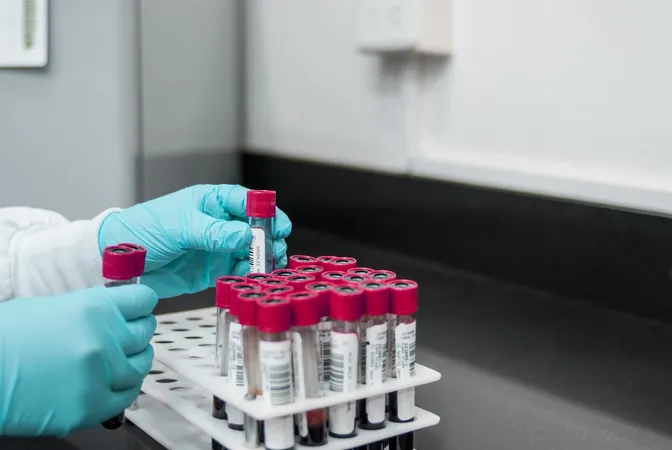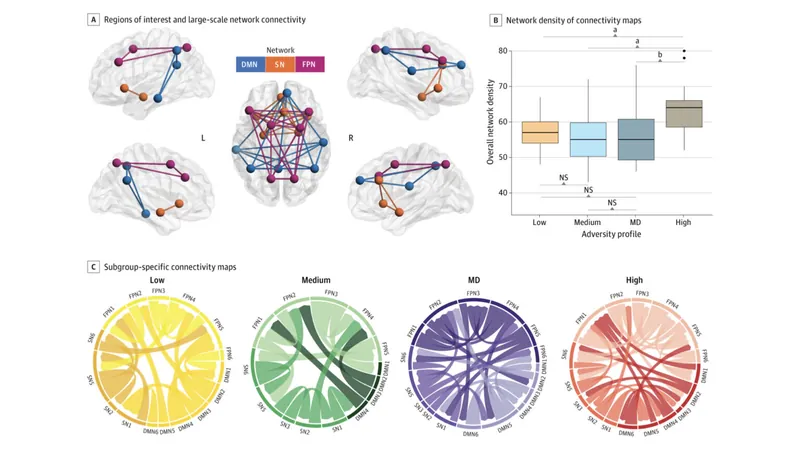
Groundbreaking Blood Test: A Game Changer for Early Diabetes Detection in Children!
2024-09-20
Groundbreaking Blood Test: A Game Changer for Early Diabetes Detection in Children!
A revolutionary blood test utilizing lipid analysis may offer a critical early warning system for identifying children at risk of obesity-related complications, particularly type 2 diabetes, liver disease, and heart disease, according to a recent study from King's College London published in Nature Medicine.
This landmark research has unveiled a groundbreaking connection between various lipid molecules and metabolic diseases in children, leading scientists to believe that this test could significantly enhance early detection of health issues like liver dysfunction. By employing existing hospital machinery to analyze blood plasma samples from infants, healthcare professionals could swiftly pinpoint early signs of illness, thus directing children to appropriate treatment faster than ever before.
Challenging the long-standing notion that cholesterol is the primary culprit behind obesity-related complications in children, the study identifies a host of new lipid molecules that correlate with health risks such as high blood pressure—factors that are not solely dependent on a child's weight.
Traditionally, lipids have been categorized merely as good or bad fats; however, recent studies by the King's College research team demonstrate that lipid profiles are far more intricate than once thought. Utilizing advanced mass spectrometry—a sophisticated chemical analysis technique—the researchers have discovered thousands of distinct lipids in the human body, each playing a different role in health.
In this particular study, a control group of 1,300 obese children was analyzed for their lipid levels, with 200 participants undergoing a Danish lifestyle intervention program known as the HOLBAEK-model for one year. Remarkably, results indicated that lipid levels associated with diabetes risk, insulin resistance, and high blood pressure diminished among the intervention group, even though some children did not show significant changes in body mass index (BMI).
Dr. Cristina Legido-Quigley, a leader in Systems Medicine at King's College London and principal author of the study, highlighted the transformative potential of this blood test: “For decades, we've relied on a simplistic classification of lipids into good and bad. This simple blood test can help us evaluate a broader spectrum of lipid molecules that could serve as critical early warning signs for various illnesses. Our research could pave the way for personalized assessments of disease risk and ultimately help prevent conditions like diabetes.”
As obesity remains a pressing health concern, this research opens avenues for doctors to identify and treat at-risk children early on, rather than waiting until they are significantly overweight compared to their peers.
Moreover, Dr. Karolina Sulek, a researcher involved in the study, emphasized the importance of early detection: “Recognizing children at risk for these serious diseases is essential. The findings underscore the urgent need for efficient obesity management strategies and empower parents to take a nurturing approach in helping their children achieve healthier lifestyles.”
Moving forward, researchers aim to explore how genetics influences lipid profiles and what that could mean for managing metabolic diseases. By understanding and modifying these lipid molecules, there is hope for improving children's health outcomes and tackling the obesity epidemic head-on.
Don't miss out on the possibility of transforming children's health through early intervention—this monumental breakthrough could redefine the future of pediatric care!


 Brasil (PT)
Brasil (PT)
 Canada (EN)
Canada (EN)
 Chile (ES)
Chile (ES)
 España (ES)
España (ES)
 France (FR)
France (FR)
 Hong Kong (EN)
Hong Kong (EN)
 Italia (IT)
Italia (IT)
 日本 (JA)
日本 (JA)
 Magyarország (HU)
Magyarország (HU)
 Norge (NO)
Norge (NO)
 Polska (PL)
Polska (PL)
 Schweiz (DE)
Schweiz (DE)
 Singapore (EN)
Singapore (EN)
 Sverige (SV)
Sverige (SV)
 Suomi (FI)
Suomi (FI)
 Türkiye (TR)
Türkiye (TR)